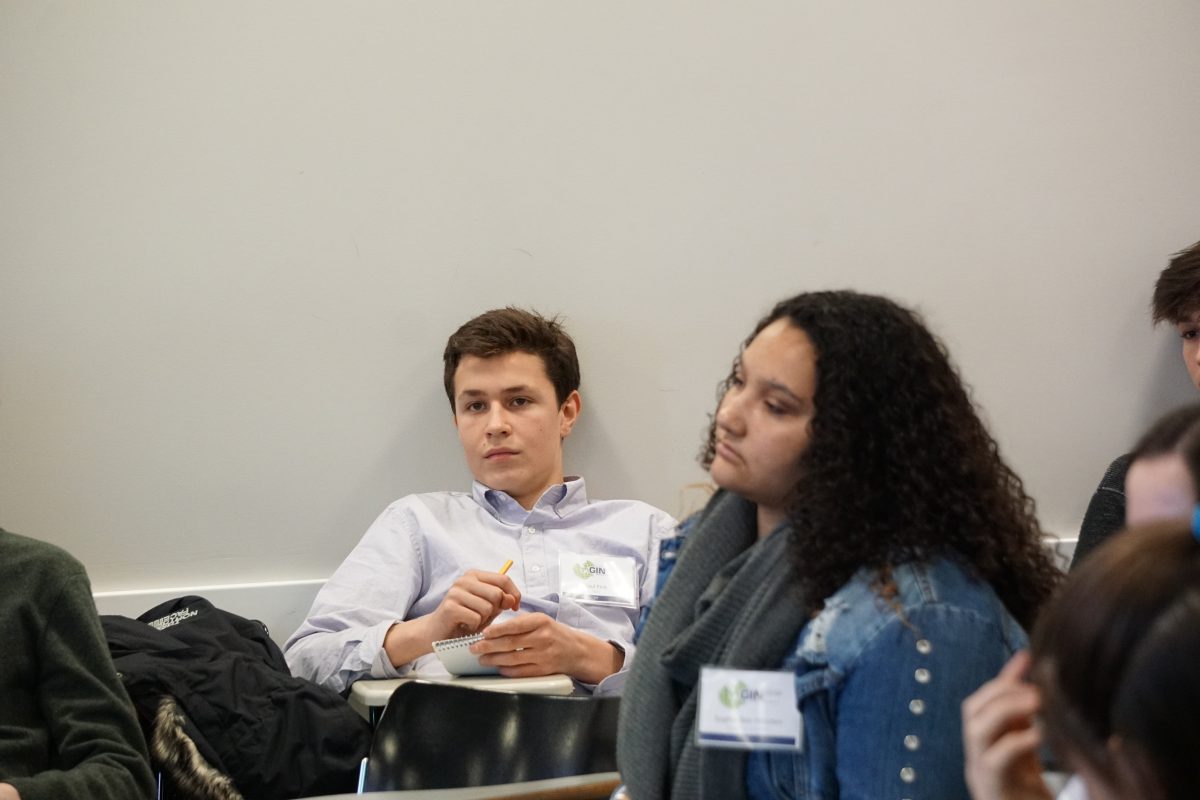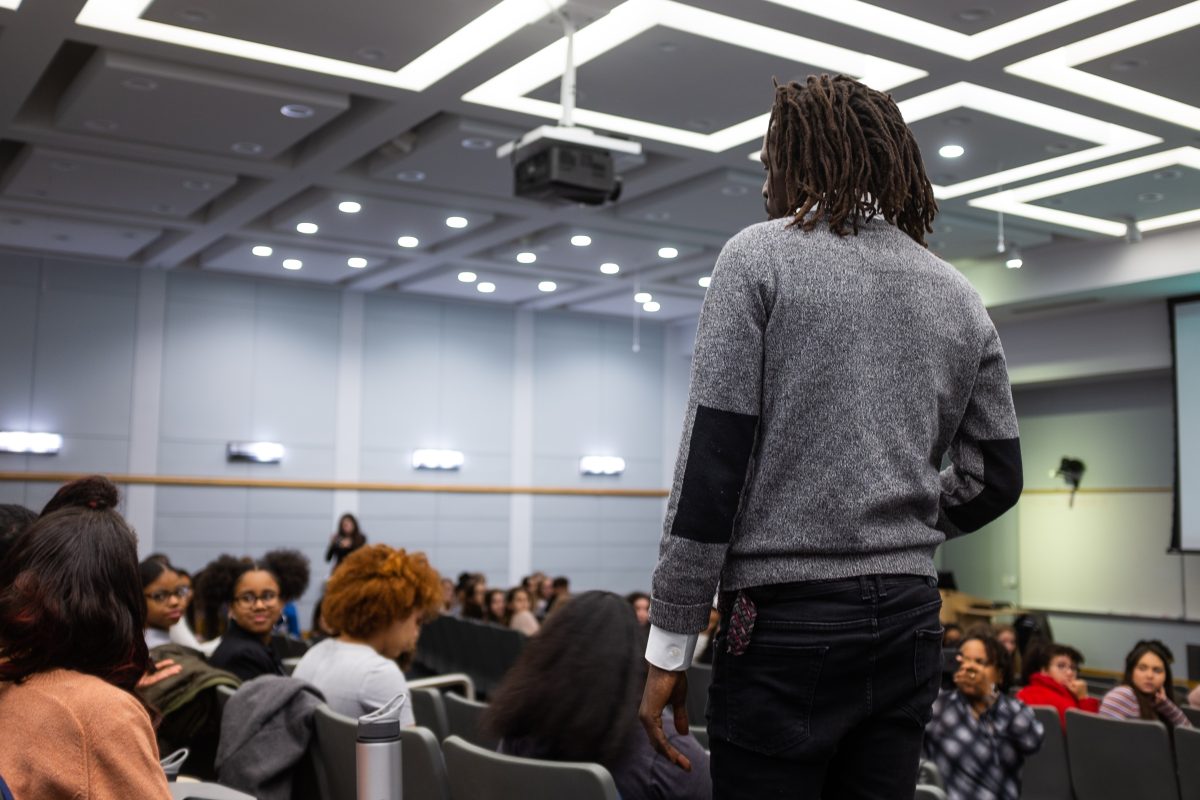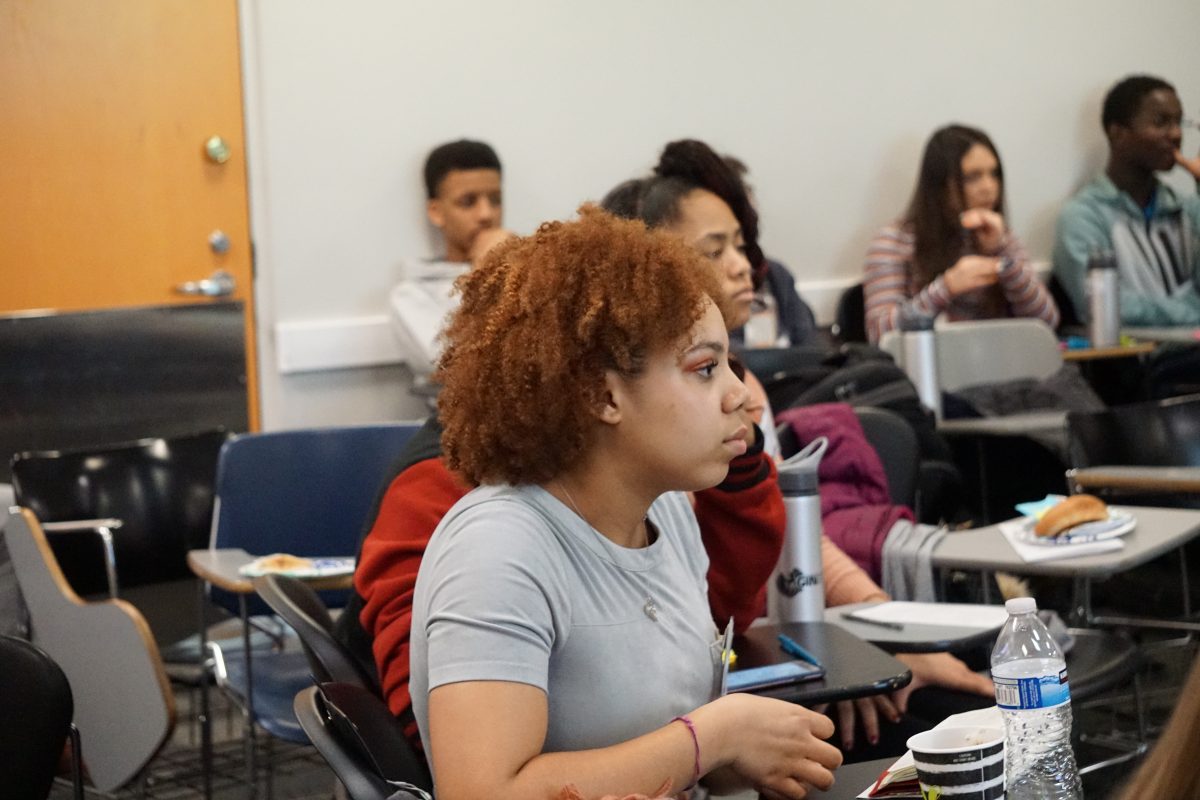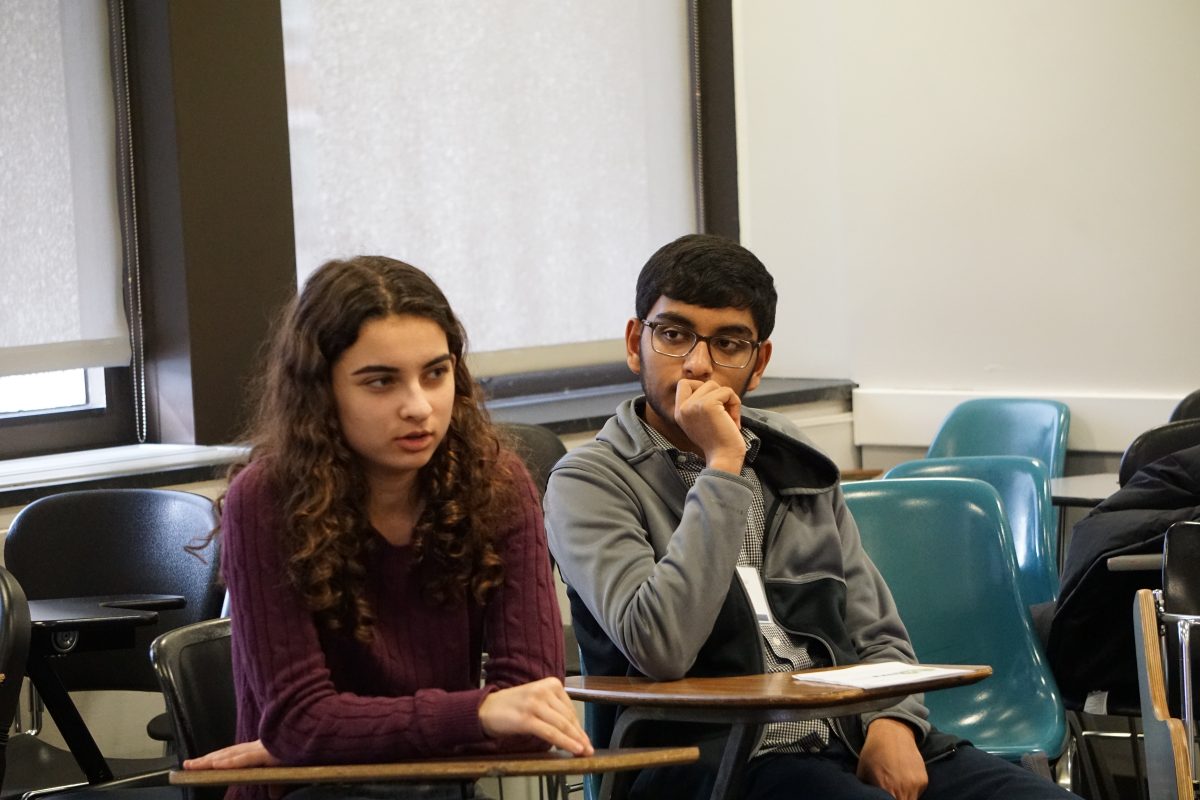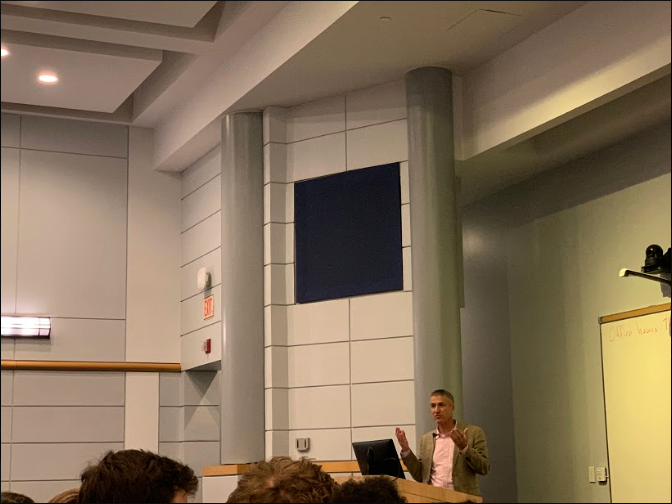At the 2019 GIN conference, Washington International School (WIS) sophomores Yared Zegeye and Vanessa Schor presented on trauma and conflict, how the two connect, and the effects trauma can have on a person.
The conference, which occurred on March 11th, kicked off with keynote speaker Emmanuel Jal, who served as a child soldier in Africa. After he told his story, the student-led workshops started; these workshops all had to do with the overarching theme of conflict. I attended the ‘Trauma and Conflict’ workshop, led by the two sophmores.
To start the presentation off, the two asked the audience how they would define ‘trauma.’ They seemed very engaged, and someone attending was quick to answer, “It’s a negative change or past experience.” They weren’t far off, as Schor explained that the actual definition is an “emotional or psychological response to an event,” and clarified that it is beyond one’s control. She also explained that the experience that causes a trauma doesn’t have to be life-threatening. It also gives the person who experiences trauma an “alone and helpless feeling.”
After the definition was covered, and all of the information had been processed, Schor asked the audience the same question as before, replacing ‘trauma’ with ‘conflict’. However, this time, they seemed oblivious, and couldn’t come up with an answer. Schor described conflict as a “trouble or difficulty”, and that it can be internal or between two or more sides.
Then, Zegeye took over, and explained that conflict can lead to trauma, and offering examples as sexual assault, war, or child abuse. With all of the bases covered, the pair explained how trauma affects the human brain, and how it affects a person. “This part [of the presentation] was the most interesting to me, because it explained how trauma actually affects a person. This was definitely helpful in understanding trauma more,” freshman Jasper Courtney said.
To start this section of their workshop of, Schor and Zegeye asked the audience how they thought trauma affected the brain. For the most part, they didn’t know. They told us that experiencing a traumatic experience actually affects multiple parts of the brain: the amygdala, which determines emotion, the hippocampus, which is accountable for one’s memory and emotion, and the prefrontal cortex, which is responsible for decision making.
When someone experiences a traumatic experience, like sexual assault, and they find themselves in a similar situation as when they experienced the trauma, the flight-fight-freeze part of their brain takes over, and rational decision making is thrown out of the window. Traumatized people could have certain triggers that cause this response, such as colors, sounds, or smells. An example of this is war-veterans, who experience post-traumatic stress disorder when they hear fireworks, because they resemble the sound of gunshots, according to The Guardian.
Zegeye described the short-term symptoms of trauma, saying “trauma can lead depression, substance abuse, dissociation, and personality disorders.” Dissociation means the person disconnects from their feelings, thoughts, memories, and sense of identity, and personality disorder means people might not act the same way they did before the trauma, according to experts.
The presenters also told us there are three types of effects one who has experienced trauma can face: PTSD, secondary trauma, and Complex PTSD. Schor and Zegeye could’ve gone deeper into exploring these three topics, but since time was short they didn’t get to fully explain the difference between the three.
PTSD is the cause of one traumatic experience, like sexual abuse, while Complex PTSD is the cause of multiple traumatic experiences, or one prolonged traumatic experience, like war, according to Medical News Today. Secondary trauma is learning about someone else’s traumatic experience, and experiencing stress because of that (NCTSN).
Next was the activity, led by WIS Middle School Counselor Ms. Wilson Odhiambo, which would offer us another view on trauma: that of the traumatized person.
For the activity, everyone got four different colored post-its. The audience then were instructed to write the name of a loved one on the yellow post-it, their favorite activity on the blue post-it, their favorite place to go on the green one, and a secret so embarrassing that almost no one knows it on the pink post-it. The next part was surprising to everyone in the room: “Rip the yellow one up. That person is now dead,” Odhiambo said.
Silence dominated the room for a minute, as everyone was confused as to what had just happened. The silence was broken: “Rip the green one up. The person died doing that activity”, and then “Rip the blue one up. The person died in that place.” After the presenters let this sink in, they told us the feeling a traumatized person feels is similar to the feeling you feel when confronting the secret on the pink Post-It: a feeling of shame, and guilt. This activity was supposed to give us a sense of what experiencing trauma feels like. “I could not imagine living where this was real,” someone from the audience said when asked how he felt about the activity. It definitely gave everyone a better understanding of what trauma feels like. While we couldn’t really relate to those who have been traumatized before, we now have a better idea of what it might feel like.
After experiencing the workshop himself, Jasper Courtney thinks it is important for other people to get an understanding of trauma and conflict too: “People should learn about this because there are people that live with this all around us and it’s important to understand their needs and understand their pain,” Courtney said.
By Erben Gerts
































































